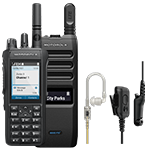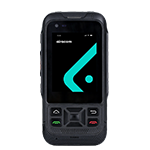Cyber Security
Cyber attacks are a growing threat with SMBs particularly vulnerable
The need for robust cyber security services is critical as cyber threats are a clear and present danger to businesses. Bad actors and hackers use increasingly sophisticated techniques to steal sensitive data and cause widespread disruption.
A failure to implement robust cyber security services and security measures within your business could result in severe financial losses, lasting reputational damage, and even legal action again your company. Our robust cyber security services identify potential threats and vulnerabilities and implement countermeasures to prevent them. This involves implementing security protocols such as firewalls, antivirus software, encryption, and intrusion detection systems and establishing policies and procedures for safe data storage, access, and sharing.
For small and medium-sized businesses (SMBs), Cybersecurity is crucial because cybercriminals often target them due to their perceived vulnerability. SMBs often lack the resources and expertise to implement robust cybersecurity measures, making them easy targets for cyber attacks such as phishing, ransomware, and data breaches. These attacks can have devastating consequences, including loss of sensitive data, financial losses, and reputational damage.
Cyber Security Services
Know your enemy and why SMBs fail to protect their systems and data from attack
SMBs struggle to protect themselves from cyber threats due to limited resources, awareness, and the constantly evolving threat landscape. Cyber threats come from various actors, such as hackers, cybercriminals, state-sponsored actors, and insider threats, who use phishing, ransomware, and social engineering to exploit vulnerabilities and gain unauthorised access. What are the threats and implications of cybersecurity for your business?
Limited Resources: SMBs often have limited resources and budgets for cybersecurity measures, making investing in robust security solutions or hiring specialised personnel difficult.
Lack of Awareness: Many SMBs lack the awareness and knowledge necessary to understand and address cybersecurity risks, making them vulnerable to common attacks such as phishing, ransomware, and social engineering.
Third-Party Risks: SMBs frequently rely on third-party vendors and contractors to provide services or access critical systems and data, creating potential vulnerabilities and increasing the risk of supply chain attacks.
Evolving Threat Landscape: Cyber threats are constantly evolving and becoming more sophisticated, making it challenging for SMBs to keep up with emerging threats and implement effective countermeasures.
Current Cyber threats
Ransomware
Ransomware attacks have increased in frequency and sophistication in recent years and are likely to continue in 2023 as a significant threat. Cybercriminals use ransomware to encrypt data and demand payment in exchange for the decryption key, causing significant disruptions to businesses and organisations. A report by Cybersecurity Ventures, global ransomware damage costs are predicted to exceed $265 billion by 2031. Additionally, a recent study by SonicWall found that ransomware attacks increased by 150% in the first half of 2021 compared to the same period in 2020.
Supply Chain Attacks
Supply chain attacks are becoming more common, with hackers exploiting vulnerabilities in third-party vendors and contractors to gain unauthorised access to systems and data. This trend will likely continue in 2023 as attackers seek to exploit weaknesses in interconnected supply chains. According to a report by CrowdStrike, supply chain attacks have increased by 650% since 2019. Another report by the cybersecurity firm RiskIQ found that the number of supply chain attacks increased by 78% in 2020 compared to the previous year.
Social Engineering
Social engineering attacks, such as phishing and pretexting, are a perennial threat and will likely continue to be a significant risk in 2023. Cybercriminals use social engineering tactics to trick individuals into revealing sensitive information or performing actions compromising security. According to the 2021 Verizon Data Breach Investigations Report, 36% of data breaches in 2020 involved phishing attacks. Additionally, a report by Proofpoint found that 88% of organisations worldwide experienced spear-phishing attacks in 2019.
IoT & ICS Attacks
The proliferation of Internet of Things (IoT) devices and industrial control systems (ICS) presents significant security challenges, with cybercriminals increasingly targeting these systems to access critical infrastructure or steal data. Attacks targeting these systems will continue to increase in frequency and severity in 2023. According to a report by Kaspersky, the number of attacks on IoT devices increased by 100% in the first half of 2021 compared to the same period in 2020. Additionally, a study by the cybersecurity company Dragos found that the number of ICS-specific vulnerabilities increased by 25% in 2020 compared to the previous year.
Cyber services
Manage your threat posture with our cyber security services
Managed Security
Focus on your core business while we focus on protecting your digital assets with our managed security services.
Mobile Threat Defence
Protect all of your company issued mobile devices or BYOD with endpoint protection outside of your corporate network.
Dark Web Monitoring
Scan for data leaks across the dark web and gather data intelligence on your risk and exposure.
Penetration Testing
Allow our team to ethically try to gain access to your systems with robust cyber security penetration testing.
Cloud Hosted Telephony
Secure cloud hosted telephony provides businesses with a reliable, cost-effective, secure communication system.
Business Mobile
Maximise productivity and stay connected on-the-go with our reliable and flexible business mobile services.
Mobile Threat Defence
Protect your business and secure your mobile devices with Trustd MTD mobile threat defence
Trustd is a mobile threat defence solution with a privacy-first approach, providing real-time visibility and analysis of potential threats on employee-issued mobile devices or a bring your own device (BYOD) approach.
![Mobile-Threat-Defence_500x1000_v2[1062331] Mobile Threat Defence](https://www.airacom.com/wp-content/uploads/2023/03/Mobile-Threat-Defence_500x1000_v21062331.png)






























































